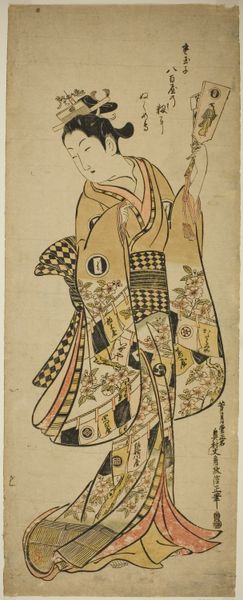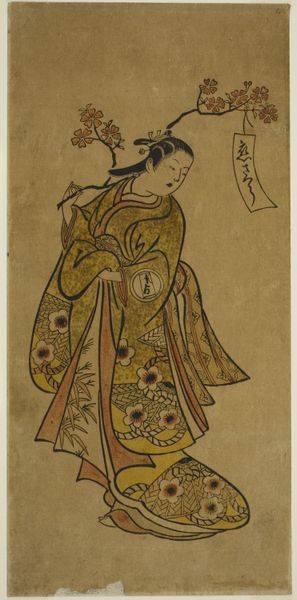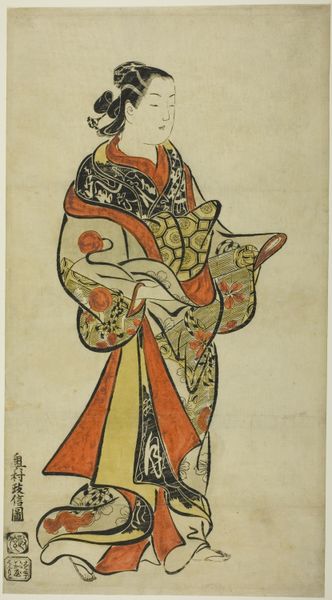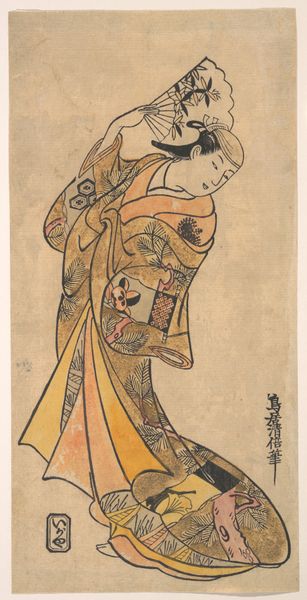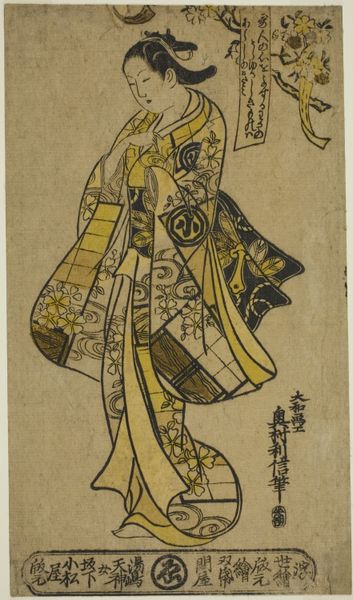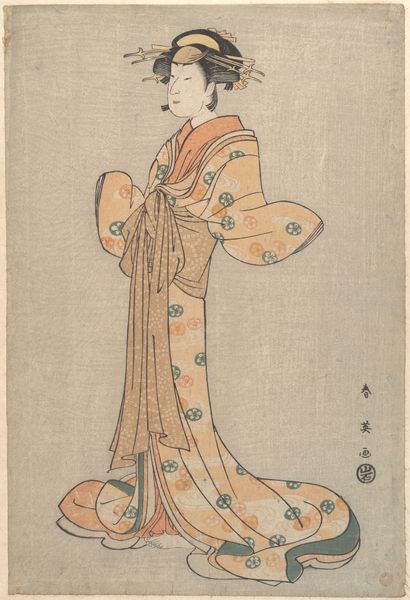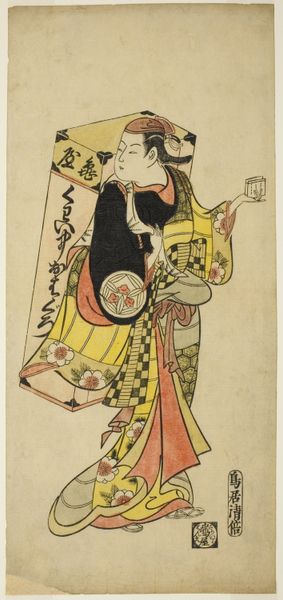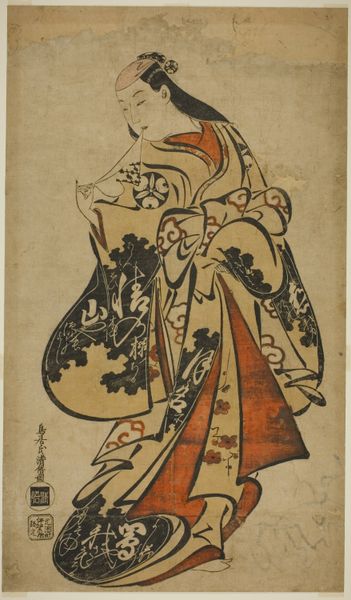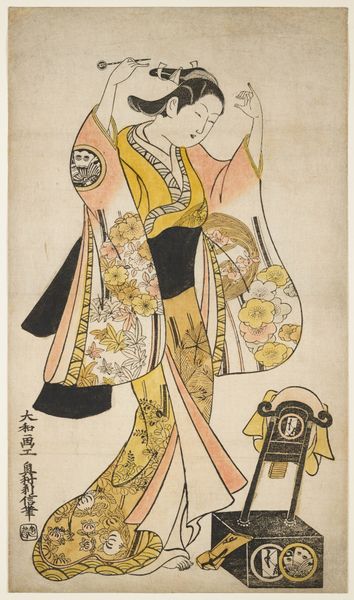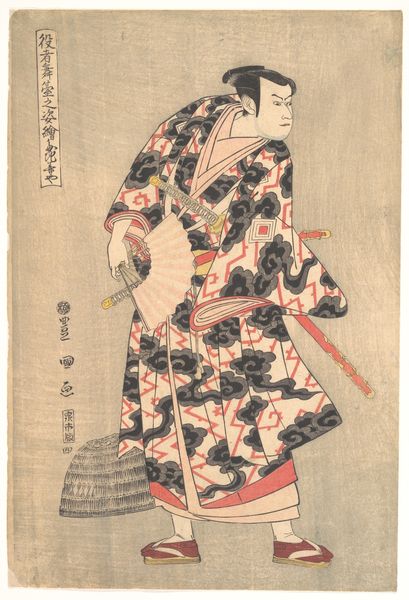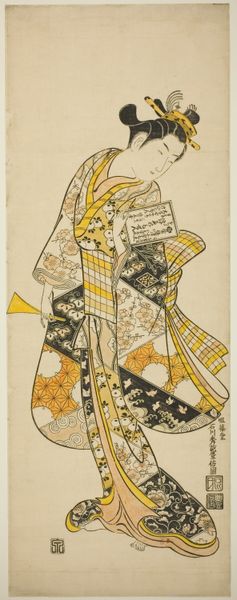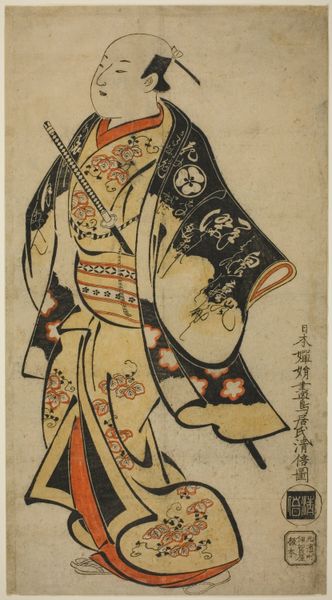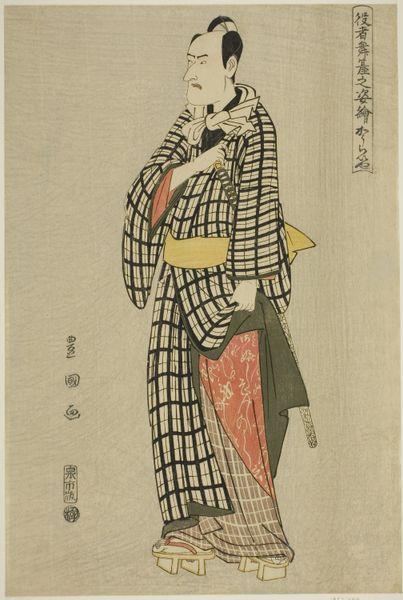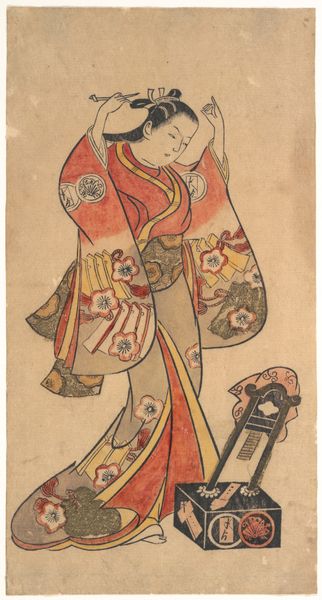
The Actor Sanjo Kantaro II as Oshichi in the play "Nanakusa Fukki Soga," performed at the Ichimura Theater in the first month, 1718 1718
0:00
0:00
print, woodblock-print
#
portrait
#
ink painting
# print
#
asian-art
#
ukiyo-e
#
figuration
#
woodblock-print
Dimensions: 21 1/2 × 12 1/4 in.
Copyright: Public Domain
Torii Kiyonobu I created this woodblock print in 1718, capturing Sanjo Kantaro II as Oshichi in "Nanakusa Fukki Soga". In Edo period Japan, Kabuki theater was a vibrant space where gender, class, and identity were constantly negotiated. Here, a male actor embodies Oshichi, a young woman who famously set fire to a temple to meet her lover. The role of women in Kabuki was historically complex; initially, women performed these roles, but were later banned and replaced by male actors, known as "onnagata," who specialized in female roles. Kiyonobu’s print not only immortalizes a specific performance but also participates in the cultural construction of femininity. Oshichi’s story, laden with themes of love, sacrifice, and defiance, was incredibly popular. The emotional intensity of her character resonated deeply in a society marked by rigid social norms. By portraying Kantaro as Oshichi, Kiyonobu invites us to contemplate the fluidity of gender and the power of performance in challenging societal expectations. The print underscores the profound ways in which art can reflect and shape our understanding of identity, history, and the human experience.
Comments
No comments
Be the first to comment and join the conversation on the ultimate creative platform.
